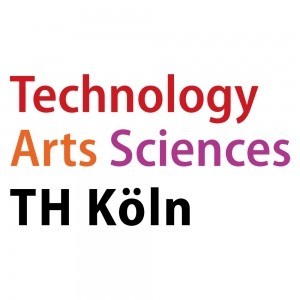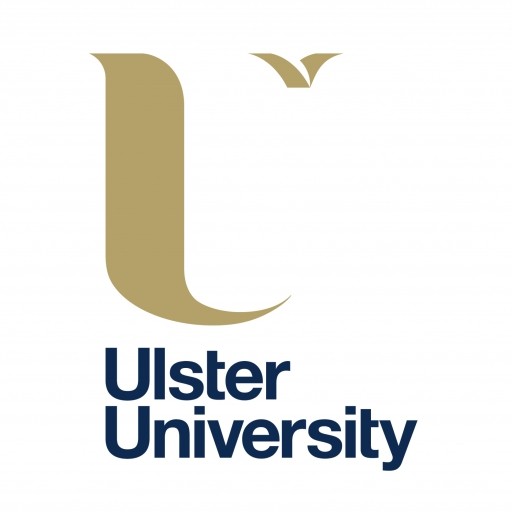Photos of university / #th_koeln
Integrated Water Resources Management with Focus on MENA Region (Double Degree) at TH Köln – University of Applied Sciences is a comprehensive graduate program designed to equip students with the knowledge and skills necessary to address the complex challenges of water management in the Middle East and North Africa (MENA) region. This program combines theoretical understanding with practical application, emphasizing sustainable approaches to water resources management in arid and semi-arid environments, where water scarcity and management are critical issues. Throughout the course of study, students will explore diverse topics including hydrology, water policy, environmental management, and climate change impacts, all tailored to the specific socio-economic and political contexts of the MENA region. The double degree structure allows students to gain valuable international exposure by studying at partner institutions, enhancing their cross-cultural understanding and global perspective in water management practices. The program fosters interdisciplinary collaboration among students from various backgrounds such as engineering, environmental sciences, policy, and economics, promoting innovative solutions for sustainable water use. Practical fieldwork, case studies, and project work in real-world settings are integral components of the curriculum, providing students with hands-on experience in tackling water-related issues. Graduates will be well-prepared for careers in governmental agencies, international organizations, NGOs, and private sector companies working towards water sustainability and policy development in the MENA region and beyond. The program's focus on regional challenges, combined with a strong foundation in technical and management skills, positions graduates as competent professionals capable of making impactful decisions for water resources management in increasingly water-scarce environments.
Educational organisation
The Master's programme starts in the winter semester of each academic year. It consists of modules, which are usually block-structured. During the first three semesters, students attend lectures and seminars; the fourth semester is devoted to writing the Master's thesis, normally in conjunction with a period abroad. The standard period of study includes the examination and research semester.The programme is structured in the following parts:
- First semester: basic modules (Geography, Economics, Project Management, International Cooperation and Information Sciences), project work
- Second and third semesters: specification modules from the areas "Environmental and Land Use Management" and "Urban and Regional Management"; in addition, elective modules from the areas "Integrated Water Resources Management", "Renewable Energy Management" as well as "Methods and Tools" can be chosen
- Fourth semester: field research abroad (up to three months) and Master's thesis
Study abroad unit(s)
The ITT supports studies abroad by recognising the modules of other universities. Particularly good opportunities to study abroad are offered at our partner universities in Spain, Brazil, Chile, Egypt, Indonesia, Jordan, Mexico, Nepal, and Vietnam.The institute also aims to enable all students to travel to a country in the tropics or subtropics for their Master's thesis for a period of three to six months.
Forms of assessment
Forms of assessment vary from written or oral exams to presentations and group work. The programme represents about 20 credit hours (30 ECTS credit points) per semester.Course objectives
The Master's course provides agronomists, engineers, architects, geographers, and natural scientists with additional subject-related know-how dealing with appropriate technologies in the tropics and the subtropics as well as with fundamental skills in resources management. Students set their focus (elective module) within the timetable as best fits their goals.The aim of the Master's course is to impart knowledge concerning complex economic and technological aspects, taking into consideration ecological circumstances. In addition to technical knowledge, students are also introduced to the principles of economics and are trained in the application of technologies and management strategies. Students will become acquainted with and will learn how to use decision instruments which contribute to sustainable ecological and economic development.
Language requirements
- Certified proficiency in English - TOEFL 550 points, iBT TOEFL 79 points, computer TOEFL 213 points, IELTS Band 6.0, Cambridge ESOL (FCE)
- The English proficiency test should not be older than five years.
- Foreign applicants applying for a DAAD scholarship: basic German language skills are recommended
Academic requirements
For admission to the Master's programme Natural Resources Management and Development (MSc), applicants are required to have successfully completed studies in the field of engineering or natural science (at least a Bachelor's or comparable degree). The following branches of study are eligible: engineering science, natural science, architecture, agriculture science, life science, earth science, and informatics.The following application documents are required:
- Letter of motivation
- Curriculum vitae (in tabular form)
- Formulated project/research idea on what you would be interested in working on in the Master's thesis (two pages in English)
- Certified copies of academic certificates:
2. All university end-of-year exam certificates (with individual grades)
3. University diploma or degree certificate indicating the final grade(s)
- Proof of English proficiency (see language requirements)
Foreign applicants not applying for a scholarship:
The application deadline for self paying candidates is 31 March 2017 for the winter semester 2017 at uni-assist (http://www.uni-assist.de/).
German applicants:
At the Student Services Office of TH Köln: 31 May
Application for a DAAD scholarship:
Additionally, with two letters of recommendation from your university at ITT - TH Köln (University of Applied Sciences): 30 September (one year before the intended start of the programme)
For more information, contact:
TH Köln
Institute for Technology and Resources Management in the Tropics and Subtropics (ITT)
Frau Ricarda Bruder Pedroso
Betzdorfer Straße 2
50679 Köln
Germany
Enrolment fees
The fee of about 250 EUR per semester includes a semester ticket covering public transport in the state of North Rhine-Westphalia.Costs of living
The costs of living for your stay largely depend on your personal needs. When planning your stay, you should calculate monthly costs of approximately 700-800 EUR.Job opportunities
Taking on a part-time job while studying has lots of benefits. Students can make some extra money, gain valuable professional experience, and might take a first step up on the career ladder.Whether and how long you are allowed to work during semester breaks is determined by your immigration office. The provisions applying to your specific case will be stated in your residence permit. To find out about these provisions, we recommend you make an inquiry at the immigration office during your first visit. International students from countries that are not member states of the EU, the EEA, or Switzerland are normally permitted to work 120 full or 240 half days per year if they are in possession of a valid residence permit for Germany.
TH Köln can assist you in finding a job that suits your profile and interests. Our Career Service and our Nebenjobservice (Part-Time Job Service) offer comprehensive counselling and specific information events on all aspects related to part-time jobs.
Please be aware that the level of your German language skills will strongly affect your chances of finding a part-time job, as German is the language of communication in Germany.
Funding opportunities within the university
TH Köln as well as other institutions offer different scholarships for international students such as the Deutschlandstipendium scholarship. Recipients receive approx. 300 EUR per month.https://www.th-koeln.de/en/international_office/deutschland-stipendium-scholarship---information-for-students_9164.php
Arrival support
ITT provides assistance for international students to get started in Cologne. Scholarship holders are usually picked up at the airport and taken to their new accommodation. ITT organises German language classes only for DAAD scholarship holders by order of the DAAD. During the first semester, additional tutorials are offered.Services and support for international students
TH Köln - University of Applied Sciences - follows the National Code of Conduct on Foreign Students at German Universities established by the German Rectors' Conference (HRK).The International Office provides advice and support for international students on all aspects related to studying at TH Köln. The International Office accompanies your stay at our university with a variety of programmes and events and invites you to become a part of our international community (e.g., mentoring programmes for new first semester students, TH Köln Buddy programme KARIBU, or Language Partnership programme).
Every semester, the International Office organises a semester programme including exciting cultural events to connect German and international students as well as activities to jointly discover different aspects of Cologne (e.g., a guided tour of Cologne, trips to museums and theatres, or a semester trip to the German capital Berlin).
Accommodation
Boasting a population of slightly more than one million, Cologne is Germany's fourth-largest metropolis - a highly attractive one on top of that. The increasing influx of people can make the search for adequate accommodation quite difficult. Dozens of apartment hunters often compete for a single apartment. That is why the International Office strongly recommends that you start looking for a place to live as soon as possible.The fierce competition on the housing market has resulted in above-market rents - particularly in proximity of the city centre. We therefore encourage you to be flexible: try to look for apartments outside the centre, as you will encounter less competition and lower rents.
Student dormitories
Cologne's most convenient and economical housing option is often a student dormitory. Kölner Studierendenwerk operates 86 student dorms offering roughly 4,700 rooms. Please be aware that TH Köln does not allocate the rooms in these dorms. In order to be allocated a room, please apply online on the website of Kölner Studentenwerk by clicking on "online-application". See: http://www.kstw.de/index.php?option=com_content&view=article&id=315&Itemid=11&lang=en.
The seemingly large number of dorm rooms is misleading; as the dormitories are open to the roughly 80,000 students enrolled at all Cologne universities, they are in extremely high demand. Make sure to apply for a dorm room at Kölner Studierendenwerk as early as possible.









